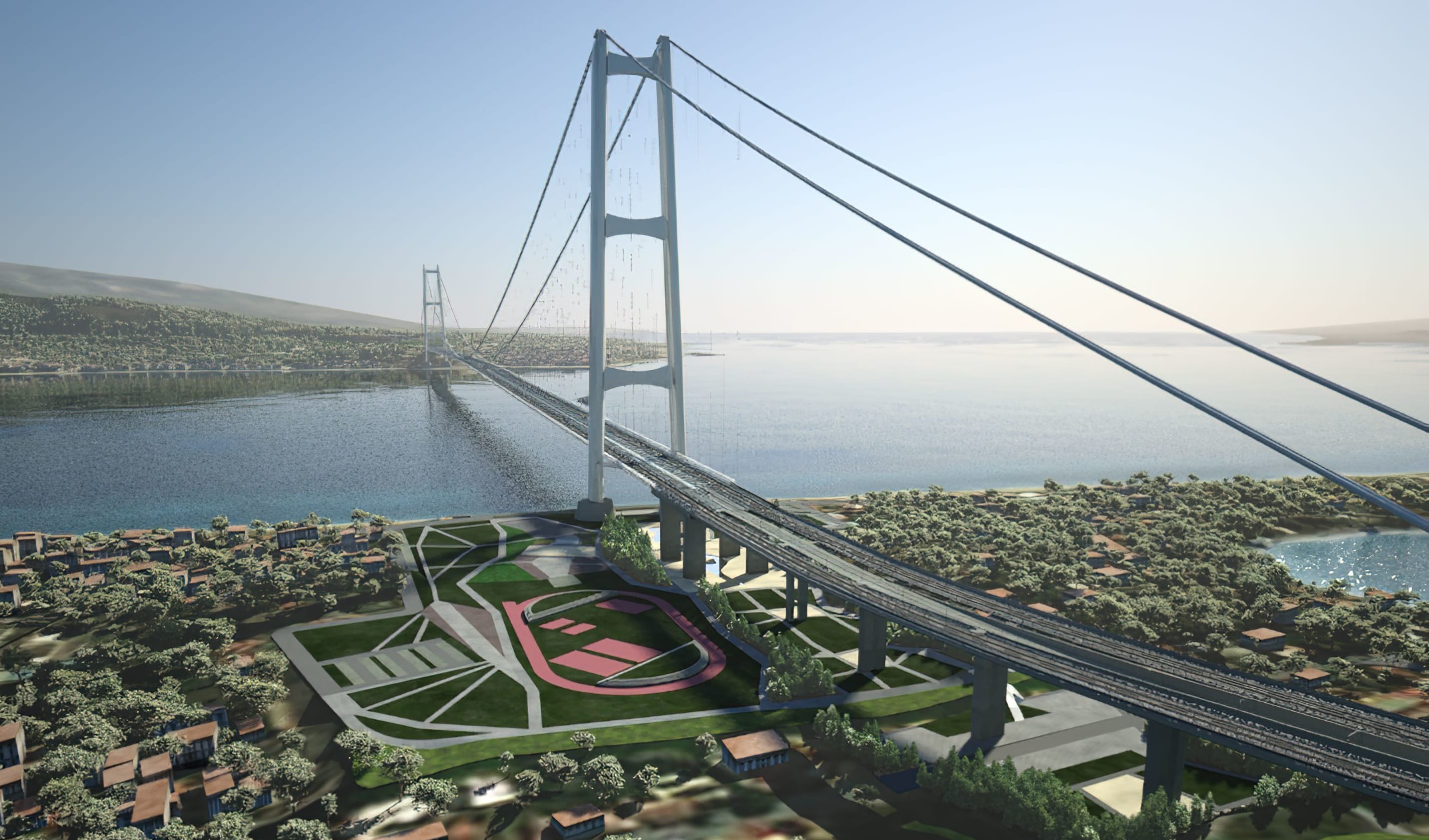Pros and cons of a bridge to Sicily
The proposed structure would, at long last, connect the island to the Italian mainland


A free daily email with the biggest news stories of the day – and the best features from TheWeek.com
You are now subscribed
Your newsletter sign-up was successful
The island of Sicily is one of the most popular tourist destinations in Italy, but getting there can still prove a challenge. While there are a number of ferries that travel back and forth, there has never been a drivable route from the island to the Italian mainland. The country is looking to change that, though, by building a bridge across the Strait of Messina, which separates Sicily from the Italian Peninsula.
The idea for the bridge is not new, dating all the way back to the Roman Empire, CNN reports. And after generations of delay, the project may finally be realized now that Italian Prime Minister Giorgia Meloni has revived a plan for its construction. If completed, the bridge would span more than two miles, 60 percent longer than the world's current longest suspension bridge.
While some are confident the project would positively transform cross-strait travel, others aren't sure the pros of such a structure outweigh the cons. Here are some of the arguments on either side of the debate:
The Week
Escape your echo chamber. Get the facts behind the news, plus analysis from multiple perspectives.

Sign up for The Week's Free Newsletters
From our morning news briefing to a weekly Good News Newsletter, get the best of The Week delivered directly to your inbox.
From our morning news briefing to a weekly Good News Newsletter, get the best of The Week delivered directly to your inbox.
Pro: It would connect Italy
A bridge could help build cultural links between the Italian mainland and the separated island of Sicily, which is home to nearly five million people. Indeed, the island "is considered a territory apart from the rest of Italy and the bridge — a physical link — would unify it with the continent," Federico Basile, mayor of Messina (the island's third-largest city), told the Financial Times.
Con: It's very expensive
Opposition lawmaker Angelo Bonelli in April described the bridge project as "a political and media fraud" due to its proposed price tag, which could reach up to $16.14 billion, per the Italian Finance Ministry. That figure could also keep rising if construction were to get delayed.
Even among those in favor, "many think the project will simply be too expensive to justify," Jalopnik writes. The last attempt to build the bridge was shut down in 2013 by former Prime Minister Mario Monti, who cited rising costs as the main factor in the decision.
Pro: It could cut down travel time
For those that live on the island, the quickest way to get to the mainland is a two-hour ferry. Travelers can also grab "a direct air-conditioned Intercity train to Sicily from Rome or Naples [via ferry], or connect in these cities from across Italy," per the European Interrail company. But neither option is as cheap or as convenient as a bridge, which would cut travel time to "under 10 minutes," Wired reports. The structure would also make it easier and faster for Sicilians to reach the Villa San Giovanni port on the mainland, a key access point for imports and exports.
A free daily email with the biggest news stories of the day – and the best features from TheWeek.com
Con: The Mafia could get involved
Southern Italy has long been drenched in corruption, and "ties between organized crime and local politicians run deep," The New York Times reported in 2012.
Indeed, two major crime syndicates in the area — 'Ndrangheta and Cosa Nostra — "[excel] in infiltrating construction projects," CNN writes. And an anti-Mafia study that is currently being updated warns that "parts of the project, such as transport and supply, could fall under criminal control, as well as there being the possibility local mobs could demand protection money," the outlet adds.
Pro: It would create thousands of jobs
Michele Longo, engineering director of Webuild, the company vying to build the bridge, told CNN that the construction phase alone would employ up to 100,000 people and 300 different suppliers. Most of these people "would come from the regions of Sicily and Calabria where there the rates of unemployment are high," she added.
In 2021, Sicily had an unemployment rate of 18.7 percent, per Eurostat. A 2017 study from the Organization for Economic Co-operation and Development also found that Italy had the highest rates of youth unemployment among the group's 35 member nations. Construction of the bridge, which will likely take years, could help quell some of that joblessness.
Con: It could harm the environment
The Messina Strait straddles two environmentally-protected zones, Dante Caserta, vice president of Italy's World Wildlife Fund branch, told Wired. As a result, the area is "crucial to the migratory movements of seabirds and sea mammals."
But construction could potentially harm the strait's wildlife, the WWF asserted. The Italian environmentalist group Legambiente agreed, having told CNN in a statement that the Messina is "one of the highest concentrations of biodiversity in the world." A bridge could significantly disrupt the migration routes of these animals, causing ecological consequences, the group added.
Justin Klawans has worked as a staff writer at The Week since 2022. He began his career covering local news before joining Newsweek as a breaking news reporter, where he wrote about politics, national and global affairs, business, crime, sports, film, television and other news. Justin has also freelanced for outlets including Collider and United Press International.
